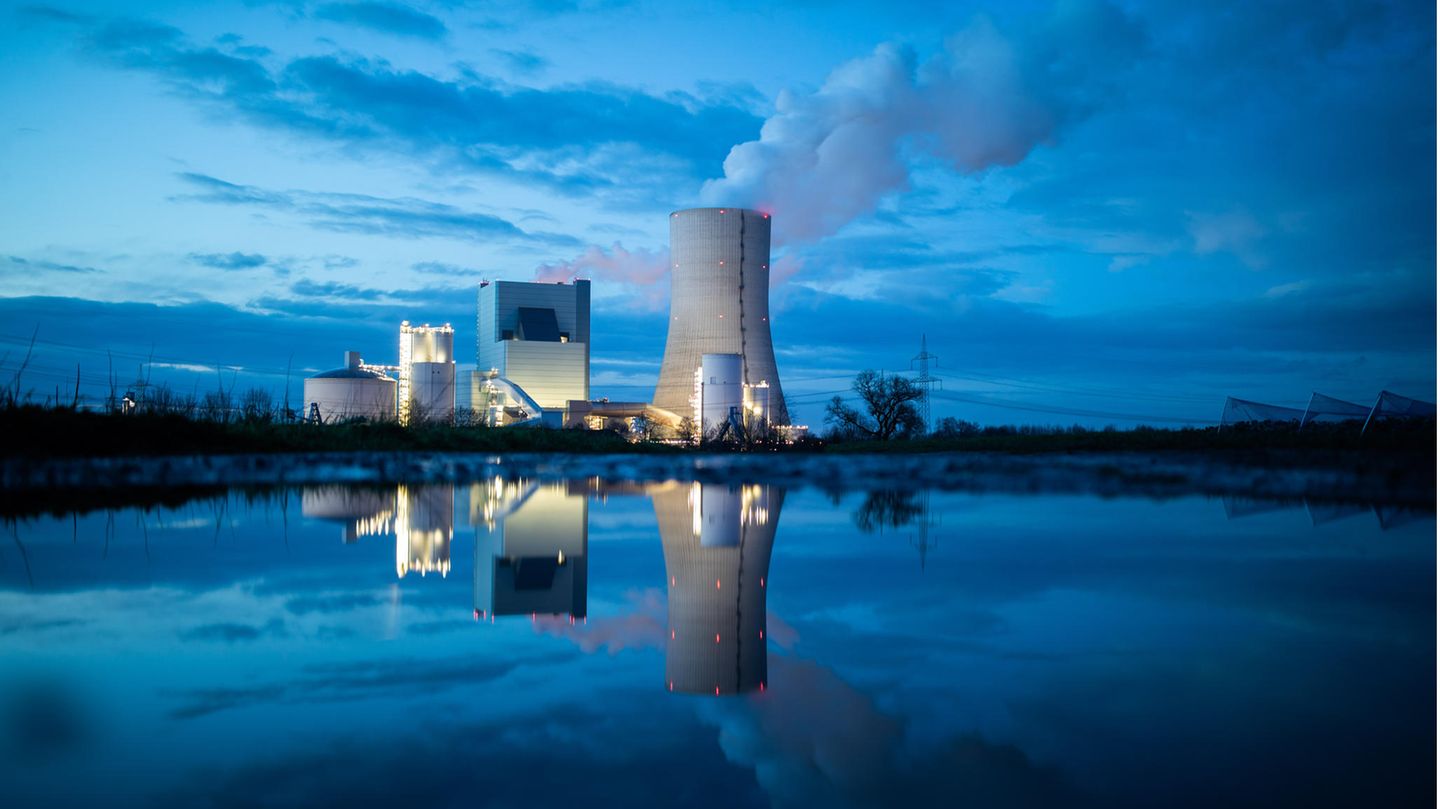After the war of aggression against Ukraine, Germany wants to get away from Russian energy supplies. But there is still a long way to go, especially when it comes to gas. What it looks like with other energy sources: an overview.
Russia has Germany in a “tight grip” – when it comes to imports of gas, coal and oil. After the Russian attack on Ukraine, however, “considerable successes” have already been achieved in reducing dependency. Economics Minister Robert Habeck (Greens) said on Friday in Berlin. Additional liquefied natural gas (LNG) deliveries from the USA to the European Union should also help.
Reduce dependency on Russia quickly
According to an “Energy Security Progress Report” by the ministry, Germany is rapidly reducing its energy dependency on Russia and putting its energy supply on a broader footing. “The first important milestones have been reached in order to free ourselves from the grip of Russian imports,” said Habeck. An overview:
money
Germany is furthest ahead when it comes to coal. So far, Russian hard coal has accounted for around 50 percent of German hard coal consumption. According to the ministry, companies have now reorganized supply chains and changed contracts. As a result, dependency on coal will drop to around 25 percent in the next few weeks. This will take effect step by step from April. By early summer, the majority of operators will have completely dispensed with Russian hard coal: “Germany can be independent of Russian coal by autumn.”
oil
According to the ministry’s report, dependency on Russian oil will drop from the previous 35 percent to around 25 percent as a result of contract changes. “By the middle of the year, Russian oil imports to Germany will probably be halved,” it says. “By the end of the year we aim to be almost independent.”
Above all, the east is dependent on Russian oil via the “Druschba” pipeline. The French energy company Total had announced that it would no longer buy Russian oil for the refinery in Leuna by the end of this year. The situation is more difficult in the Schwedt refinery, which was almost completely taken over by the Russian state-owned company Rosneft – an investment that is currently being reviewed by the Ministry of Economic Affairs. Habeck said it was a mistake to give such a responsibility to a Russian state-owned company.
gas
Getting away from Russian gas is more complicated than oil and coal. According to the ministry, the share of Russian gas deliveries has already fallen from 55 percent to 40 percent. Habeck said it could be possible to become independent of Russian gas by the summer of 2024, with the exception of a few shares. But that also depends on the speed of the expansion of renewable energies in Germany – and on a consistent reduction in consumption at all levels.
Additional deliveries of liquefied natural gas (LNG) should now help. The federal government is working on putting several floating LNG terminals into operation in Germany in 2022 and 2023. The energy companies RWE and Uniper had secured an option for three floating LNG terminals on behalf of the federal government. In addition, the construction of terminals in Brunsbüttel, for example, is to be promoted.
Additional, non-Russian gas is said to come from Norway, the Netherlands and Qatar, for example – and from the USA. The United States announced on Friday that it intends to deliver an additional 15 billion cubic meters of LNG to the EU this year together with international partners. In the long term, the amount should increase: by 2030, the EU should buy around 50 billion cubic meters of LNG per year from the USA, as announced by US President Joe Biden together with Commission President Ursula von der Leyen in Brussels. According to the Commission, this could replace around a third of current gas imports from Russia.
However, gas from the USA is controversial: In the USA, LNG is usually produced using the fracking method. A liquid is pressed into the ground under high pressure in order to make the rock more permeable and to be able to extract gas or oil. Critics warn of environmentally harmful emissions and a possible threat to groundwater. For example, the US state of California wants to ban fracking from 2024.
security of supply
Germany got through the winter safely, said Habeck. There are currently no supply bottlenecks. But he cannot yet say that Germany will get through next winter safely. In order for this to succeed, in addition to additional “Putin-free” gas deliveries, the gas storage facilities in Germany should always be sufficiently filled in the future.

On Friday, the Bundestag approved a corresponding law that provides for a phased plan with binding filling levels. The storage levels were historically low this winter, according to the Ministry of Economic Affairs. This applies in particular to the two storage facilities of the Russian state-owned company Gazprom. Such a situation should not be repeated next winter. In addition, the ministry is working to keep more coal-fired power plants in reserve.
In addition, the oil and gas consumption should be reduced. “Every effort, every kilowatt hour saved also helps and harms Putin,” said Habeck. However, the traffic light could not agree on a general speed limit on German motorways, instead there are reliefs for drivers at the gas station. The federal government is also planning faster replacement of oil and gas heaters.
Source: Stern
David William is a talented author who has made a name for himself in the world of writing. He is a professional author who writes on a wide range of topics, from general interest to opinion news. David is currently working as a writer at 24 hours worlds where he brings his unique perspective and in-depth research to his articles, making them both informative and engaging.




